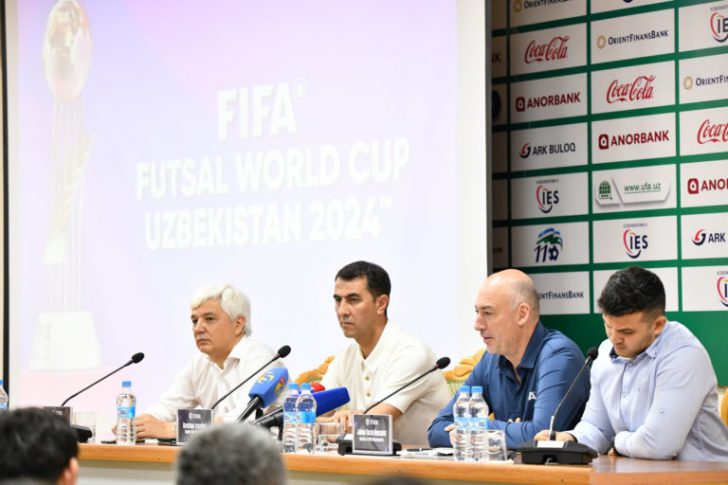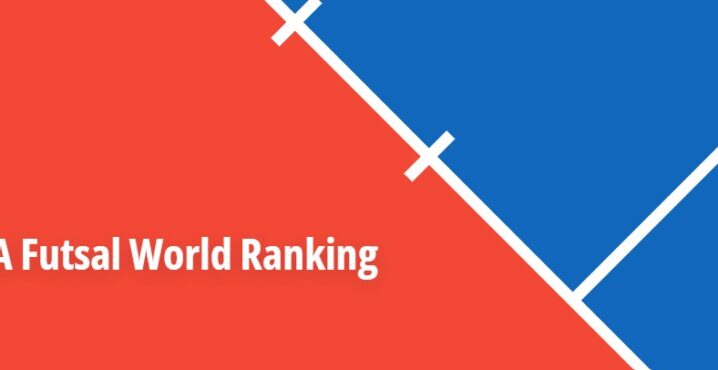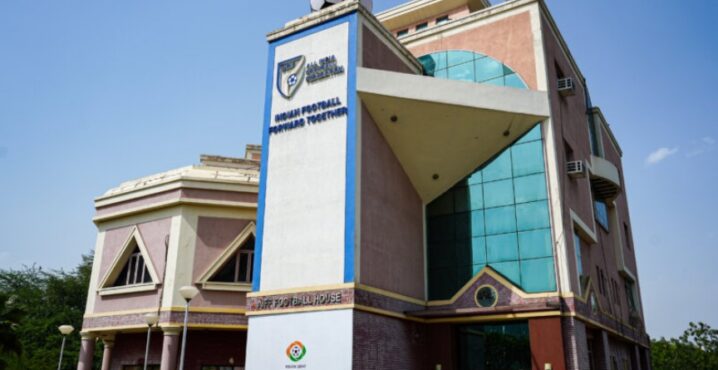Estimated reading time:10 minutes, 26 seconds
Since FIFA announced Uzbekistan as the host of the 2024 FIFA Futsal World Cup, Futsal Focus has received questions, asking for our opinion on this decision. Futsal Focus delves into the reasons behind this decision and offers our perspective on it.
The selection of Uzbekistan as the host country for the 2024 FIFA Futsal World Cup has taken many by surprise. However, it is important to note that futsal commentators have recognized and respected the nation’s recent achievements, including their impressive performances in the 2016 and 2021 FIFA Futsal World Cups. Furthermore, Uzbekistan has had numerous successful campaigns in the AFC Futsal Asian Cup, adding to their competitive track record.
The concern voiced by industry insiders is centered around whether hosting the competition in Uzbekistan will generate the necessary promotional momentum to enhance the competition’s entertainment value and attract wider interest from around the world. The decision to select Uzbekistan as the host country for the competition is widely perceived to be politically motivated, and will serve the sport’s development only in Uzbekistan.
There is a prevailing viewpoint that the previous two World Cups have fallen short in terms of effectively leveraging their potential as platforms to promote the sport. These events were unable to capture a wider audience and generate heightened interest in futsal, especially among the media and business sectors. Following 2021, there was a growing sentiment among futsal commentators that hosting the World Cup in Africa would be beneficial, particularly to support the Youth Olympics scheduled for 2026 in Senegal, where futsal has replaced football since 2018. Morocco emerged as a potential candidate which garnered significant support from the futsal community. Given that the African continent is the final frontier for futsal’s widespread adoption, hosting the World Cup in Africa had the potential to ignite the sport’s development in the region.
Uzbekistan’s successful bid for the 2024 FIFA Futsal World Cup
In Uzbekistan, a press conference was held, featuring representatives from FIFA and UEFA, shedding light on the decision-making process and the rationale behind choosing Uzbekistan.
Ravshan Irmatov, the first vice-president of the Uzbekistan Football Association (UFA), commenced the conference by emphasizing that hosting the World Cup has been a long-standing dream for both the people of Uzbekistan and its futsal players. Irmatov highlighted the country’s track record in organizing prestigious tournaments in recent years, underscoring the increased possibility of Uzbekistan being chosen as the host nation.
He attributed this achievement to the significant attention and investment in sports by the Uzbekistani government. Irmatov further mentioned FIFA President Gianni Infantino’s visit, during which he acknowledged Uzbekistan’s strong desire to host major tournaments.
Moreover, Irmatov noted that recent years have witnessed a deliberate effort to broaden the reach of sports competitions across different regions of the country. Notable international games were successfully held in Kashkadarya, Namangan, and Fergana, leading to infrastructural development and providing local specialists with valuable international experience. Irmatov argued that the attention given to futsal, as well as the healthy competition within the national championship, played a pivotal role in securing the opportunity to host the World Futsal Championship.
Jahangir Usmanov, head of the futsal development committee under the UFA, acknowledged that while Uzbekistan has experience in hosting international competitions, the World Cup represents an entirely different level and requires better preparation. Usmanov mentioned preliminary inspections conducted with FIFA representatives, which involved a thorough examination of the country’s regional capabilities. He stressed the necessity for collaborative efforts between futsal players, coaches, experts, and media representatives to ensure the successful execution of the tournament.
Jaime Yarza Gonzalez, Head of the FIFA Competitions Department, provided insights into the selection process and the reasons behind choosing Uzbekistan as the host nation. Yarza Gonzalez commended Uzbekistan’s successful track record in organizing various competitions, which played a significant role in their decision. He expressed satisfaction with the enthusiasm for futsal exhibited in each city visited and emphasized the goal of popularizing the sport further within the country. Additionally, Yarza Gonzalez recognized the opportunity for Uzbekistan to showcase its progress as a nation on the global stage, considering the widespread coverage and international fan participation the World Cup attracts.
During their visit to Uzbekistan, Yarza Gonzalez, Ravshan Irmatov, and Jahangir Usmanov explored five cities, including Tashkent, Fergana, Andijan, Samarkand, and Bukhara, inspecting the facilities, training halls, and hotels. The results of this inspection will be thoroughly analyzed in collaboration with UFA representatives before the final decision is announced.
It is evident that hosting the 2024 FIFA Futsal World Cup presents an opportunity for Uzbekistan to showcase its futsal capabilities and demonstrate its progress as a nation. The global visibility and international visitors associated with the tournament will undoubtedly contribute to the country’s exposure and reputation.
However, the journey ahead is not devoid of challenges. Recognizing the importance of thorough preparations and concerted endeavors, both FIFA and the local organizing committee have acknowledged the need for extensive measures to ensure the successful execution of the World Cup. With ample time at their disposal, FIFA holds the expectation that Uzbekistan will rise to the occasion and deliver a tournament of exceptional quality that surpasses the expectations of futsal enthusiasts around the globe. Uzbekistan has hosted international futsal tournaments before, they were hosts for the 2006, 2010, and 2016 AFC Futsal Asian Cups. In each competition, they reached the Final, losing to Japan in 2006 and to Iran in 2010 and 2016.
2016 and the 2021 FIFA Futsal World Cups
The last two FIFA Futsal World Cups have received a lot of criticism. In the 2016 FIFA Futsal World Cup in Colombia, there were concerns raised about low attendance at matches, particularly in the early stages of the tournament. Factors such as a lack of awareness, and competition from other sporting events in the region have been suggested as contributing to the lower turnout. Additionally, the promotion of the tournament, both domestically and internationally, didn’t reach a wide enough audience or generate significant buzz.
As for the 2021 FIFA Futsal World Cup in Lithuania, it is worth noting that the COVID-19 pandemic had a significant impact on the event. The tournament was rescheduled from its original dates in 2020 due to the global health crisis. This change undoubtedly affected the marketing and promotional plans for the tournament. However, why Lithuania was chosen over other bidding nations such as Japan (which has a national league mixed with fully professional and semi-professional clubs – F.League), and New Zealand, where futsal popularity has grown exponentially, and its national league is now on Sky Sports. When you discuss the 2021 FIFA Futsal World Cup with Futsal commentators, no one chose Lithuania as their preferred host nation, Japan or New Zealand was the preference of many who felt these nations could give futsal the media and business awakening the sport needed. Due to this, leaves a big open question in relation to how FIFA is choosing the world cup host and why is there a serious lack of transparency when it comes to who has bid or not. Up until Uzbekistan was announced there was no knowledge at all of there bid and other nations were mentioned online based on rumours rather than fact.
In Lithuania, basketball holds the distinction of being the most popular sport at the national level. The group stages of the tournament were spread across three cities: Vilnius, Kaunas, and Klaipėda, which are situated at considerable distances from each other. Among these cities, Kaunas is widely acknowledged as the basketball capital of Lithuania. Surprisingly, the Organizing Committee chose to host the final stages in Kaunas. Having personally attended the final stages, I must admit that this decision proved to be strategically flawed, as it resulted in a lack of interest in the competition.
On the other hand, Klaipėda, located on the Baltic coast, boasts a sports scene primarily centered around football and sailing. Football enjoys a significant following in the city, with FK Atlantas, a Klaipėda-based club, making its mark in Lithuanian football. Despite being the smallest venue among the three cities, in my own opinion, with effective marketing efforts, it would have been more feasible to attract a larger audience and fill the stadium without having to revert to other strategies unhelpful to the sports image to fill the arena which show the poor promotion of the final stages of the competition.
Preparations and Challenges for Uzbekistan
One of the main challenges for Uzbekistan is ensuring thorough preparations and coordination between various stakeholders. As mentioned by Jahangir Usmanov, head of the futsal development committee under the UFA, hosting the World Cup represents a higher level of competition that requires better preparation.
Collaborative efforts between futsal players, coaches, clubs, experts, and media representatives will be crucial to organize and execute the event smoothly. However, the main concern is whether the nation will be successful in promoting the competition and attracting sizable audiences, not just for their national team but for the competition as a whole.
To address these concerns and improve the promotional aspect of the tournament, several measures can be taken:
- Enhance Marketing and Promotion: Implement a comprehensive marketing and promotional strategy that targets not only futsal enthusiasts but also a broader audience. This can include engaging social media campaigns, collaborations with popular influencers, and partnerships with local and international brands to generate buzz and create excitement around the event.
- Boost Media Coverage: Work closely with media outlets to ensure extensive coverage of the tournament. This can involve securing partnerships with broadcasters, both domestic and international, to ensure maximum visibility and reach. Additionally, providing media representatives with comprehensive press kits, especially for commentators, and encouraging broadcasting partners to employ commentators who actually know and understand futsal. Access to players and coaches, and behind-the-scenes content can help generate interest and media coverage.
- Engage the Business Sector: Collaborate with local businesses and organizations to create sponsorship opportunities and corporate partnerships. Incentivize companies to invest in the tournament by offering advertising and branding opportunities, hospitality packages, and exclusive access to events. This will not only provide financial support but also help raise the profile of the tournament within the business community. Focus the competition marketing and advertising on Futsal. At too many FIFA and even UEFA Futsal competitions, football is promoted at the event on the wide screens and interviews are included in the match day programmes with football players rather than the actual coaches and players taking part in the competition. The emphasis has to be on futsal, leave football out of the competition.
- Create Engaging Fan Experiences: Focus on enhancing the overall fan experience to attract a wider audience. This can involve organizing fan zones, interactive activities, and special events during the tournament. Additionally, facilitating easy ticket purchasing processes and offering affordable ticket options can encourage more people to attend matches and experience the excitement firsthand.
- Collaborate with Local Communities: Involve local communities in the planning and organization of the tournament. Engage schools, youth futsal clubs, and community organizations to promote the event and encourage participation. This can include organizing grassroots initiatives, futsal clinics, and tournaments to create a sense of excitement and engagement at the grassroots level.
By implementing these strategies, Uzbekistan can work towards improving the promotional aspects of the 2024 FIFA Futsal World Cup, generating greater entertainment value, and increasing interest in the sport. With a concerted effort to engage the media, business sectors, and local communities, the tournament has the potential to captivate a wider audience and draw more people into the exciting world of futsal.
(Main picture source: Uzbekistan Football Association)
Author of interview
Stephen McGettigan was born in the Republic of Ireland but grew up in Belfast. He is the founder of Futsal Focus, a Football Industries MBA graduate from the University of Liverpool Management School, and he has worked in the Football and Futsal industries for 15 years.
Organ Donation
Futsal Focus is a supporter of Dáithí Mac Gabhann and his family’s campaign to raise awareness of Organ Donation. We encourage our readers to learn more about Organ Donation: https://www.organdonation.nhs.uk/
Futsal Focus
You can read more articles about international futsal by going to the top navigation bar or by clicking here
If you like this article and would like to keep updated on Futsal news, developments, etc then you can now follow Futsal Focus via Google News by following our page which will send you an alert as soon as we publish an article so please click here and follow us on Google.
You can also keep updated on Futsal news, developments, etc then please submit your email below in the Subscribe to Futsal Focus option.
















![Validate my RSS feed [Valid RSS]](https://www.futsalfocus.net/wp-content/uploads/2020/01/valid-rss-rogers.png)




